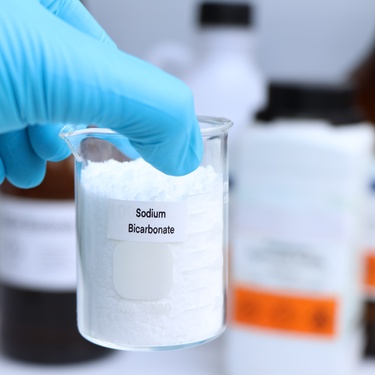
Baking soda, or sodium bicarbonate, might seem unassuming, but it’s a powerful ingredient that drives efficiency and sustainability in the manufacturing sector. While most people associate it with baking or deodorizing, manufacturing professionals and chemical engineers know its potential goes far beyond the kitchen. Explore the importance of baking soda in the manufacturing industry to understand its chemistry and diverse uses across operations.
Chemical Composition and Properties of Baking Soda
Chemically known as sodium bicarbonate (NaHCO₃), baking soda is a simple yet versatile compound with unique properties that make it indispensable in industrial processes. Its mild alkalinity allows it to neutralize acids and maintain pH balance, making it a staple in chemical buffering and industrial cleaning.
Additionally, being nontoxic, environmentally friendly, and cost-effective, sodium bicarbonate remains an attractive option for manufacturers striving for performance and sustainability. Its fine crystalline structure also lends itself to applications requiring a gentle abrasive, making baking soda an essential tool across industries.
Cleaning and Degreasing
When it comes to industrial cleaning, baking soda is a superstar. Its mildly abrasive nature removes tough residues, grease, and grime without damaging surfaces.
Sodium bicarbonate blasting, a popular cleaning method, is used to strip paint, clean delicate machinery, and remove contaminants from surfaces in a nondestructive, eco-friendly manner. Unlike harmful chemicals, baking soda ensures a safe and effective clean, helping manufacturers maintain their equipment with minimal environmental impact.
Odor and Pollutant Control
Baking soda’s ability to absorb and neutralize odors and pollutants is another reason for its widespread use in manufacturing. For facilities that handle smelly, volatile materials, sodium bicarbonate captures foul odors by neutralizing acidic and basic compounds.
Sodium bicarbonate is also one of the primary chemicals in air filtration systems that neutralize pollutants. As fumes from chemical mixtures waft into the air and expel outside, the alkali in sodium bicarbonate turns acidic gases like sulfur dioxide (SO2) and hydrochloric acid (HCl) into neutral salts. Its properties make it particularly useful in food production, waste management, and chemical processing industries, ensuring a cleaner and more pleasant work environment.
Abrasive Cleaning
Relying on just the right level of abrasiveness, baking soda cleans delicate equipment without causing damage. This abrasiveness makes it an essential tool in automotive manufacturing, aerospace, and electronics assembly industries. Whether gentle surface cleaning or removing fabrication residues, baking soda ensures top-notch cleanliness while preserving the integrity of industrial tools and equipment.
Baking soda is a sustainable and eco-conscious option in an industry striving for greener practices. Its nontoxic nature and biodegradability make it a safe alternative to harsh chemicals.
Understanding the importance of baking soda in the manufacturing industry helps companies reduce their environmental footprint without sacrificing efficiency or quality. The next time you see a humble box of baking soda, remember its mighty role behind the scenes in powering innovation and smooth operations across various industries.
Bio: Casey is a passionate copyeditor highly motivated to provide compelling SEO content in the digital marketing space. Her expertise includes a vast range of industries from highly technical, consumer, and lifestyle-based, with an emphasis on attention to detail and readability.



















